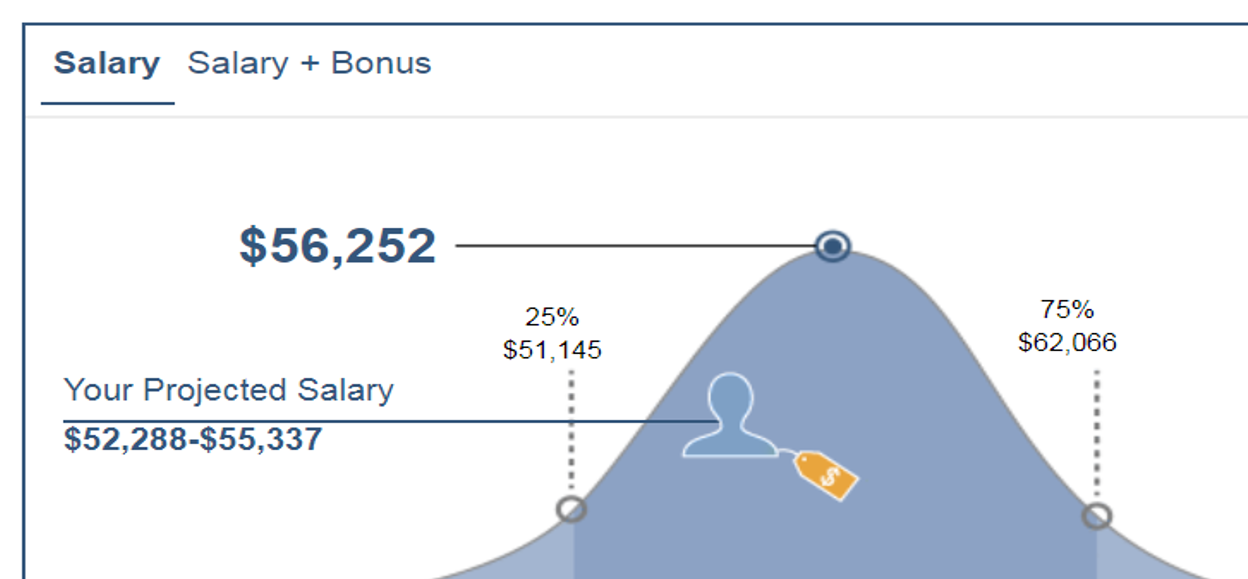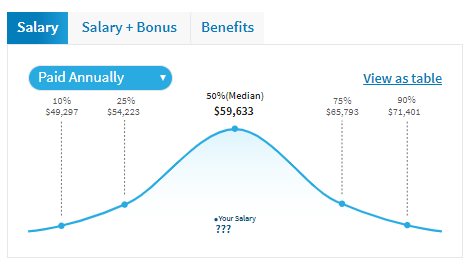Congratulations! You got a job offer. Should you negotiate that offer?
People in new careers out of college and even graduate school may feel so relieved and grateful that they may not even think about negotiating their first offer, especially in a down market.
According to an article in the Atlantic, “62 percent of recent graduates didn’t negotiate their salary at all even though 84 percent of employers said they had room to bump [the] original offer”. —and even though “most of them” expected to do so. In addition, women fail to negotiate at a much higher rate (66% of women vs 51% of men). Here are some reasons why people don’t negotiate.
- Afraid the offer would be rescinded.
- Didn’t think it was possible.
- Lacked confidence in their negotiating skills.
- Happy with the offer!
So how do you negotiate your salary? Here are some Pro Tips:
Pro Tip # 1: Know Your Value
“If you walk into a salary negotiation without a number, you’re at the mercy of an experienced hiring manager who will simply control the conversation.” – Ramit Sethi, author of I Will Teach You to Be Rich
Luckily there are a number of websites that will help you to research the range that you should expect to be paid as a base salary for the work that you will be doing.
PayScale.com – generally when I am talking to a student about negotiating their starting salary, they have already received (at least one) offer. This is when Payscale.com really shines. PayScale has collected salary and career data from more than 54 million people, covering 16,000 unique job titles. The website is very thorough and asks a lot of questions. It is worth it to make a free account to get the final information. Here is an example of the beginning of a salary report:
The Payscale report also includes information on Your Variable Pay (bonuses), Your Market Worth Over Time, Pay By Experience Level By Gender, and Skills That Impact Pay.
Salary.com – The Salary Wizard on Salary.com allows you to look at jobs in the same field at different levels, in our example of Financial Analyst, from a Junior Financial Analyst to a Financial Analyst IV so that you can read the differences in responsibilities and match it to the job you have been offered. As with Payscale.com, the more information you feed into the tool the more accurate it becomes. Here is an example:
SalaryExpert.com – SalaryExpert’s salary calculator will compare your information to our salary database. Upon completing the calculator, you’ll receive a report showing the salary someone in your area with the same experience and skill set should receive. This salary calculator is powered by the data collected by ERI Economic Research Institute who has been collecting compensation data for over 30 years.
Additional websites to use to get a clear picture of your market value include SalaryList, Indeed.com/salaries, Job Search Intelligence, Glassdoor, Linkedin.com/salary, and Careeronestop.com
Bonus Tip: Know Your Value in Other Places.
Thinking of Relocating? You should know your market value in the place you are thinking of relocating. Check out MoneyGeek’s Cost of Living Calculator.
- Detailed and customizable graphs comparing over 350 cities across the U.S.
- Compare housing, food, utilities, transportation, and other cost-of-living factors across cities
- Income projections for each city selected
- FAQ’s around cost of living
Pro Tip # 2: First, ask.
Simply ask the person that made you the offer “Are you willing to negotiate the compensation?” If the answer is any form of “yes”, use the following methods to make your best case for more money. If the answer is a firm “No”, see Pro Tip #8 at the bottom of the article.
Pro Tip # 3: Even though you know the range, don’t use the range to negotiate.
You should never use the word “between” when negotiating. In other words, never give a range: “I’m looking for between $52K and $60K.” That suggests you’re willing to concede, and the person you’re negotiating with will immediately jump to the smaller number. This is called anchoring.

“Don’t give a range, because the bottom of the range will inevitably be what they can ‘afford’. Do your research, find your target number and anchor at a number a step or two higher than your target. This way, you create wiggle room for yourself.” – Negotiation Consultant, Jamie Lee.
Pro Tip # 4: Be specific.
According to researchers at Columbia Business School, you should ask for a very specific number—say $55,750 rather than $55,000.

Turns out, when employees use a more precise number in their initial negotiation request, they are more likely to get a final offer closer to what they were hoping for. This is because the employer will assume you’ve done more extensive research into your market value to reach that specific number. (which, of course, you have done).
Pro Tip # 5: Be Kind But Firm
“I’m really excited to work here and I know that I will bring a lot of value. I appreciate the offer at $52,000 but was really expecting to be closer to $60,000 based on my experience, drive, past performance, and market research on similar positions. Can we look at a salary of $57,000 for this position?”
Pro Tip # 6: Consider Other Options
If your boss (or the hiring manager) really, really won’t budge? Try negotiating for flex time, more vacation time, a better title, plum projects or assignments, or at least a guaranteed discussion of a possible future raise based on performance.
Bonus Tip! Be Ready to Answer Tough Questions and Overcome Challenges
- “How much do you hope to make in your first job?”
- “Are you considering any other offers?”
- “How long do you expect to stay in this job?”
- “Is there any reason you wouldn’t be able to accept this offer?”
You need to think about these questions before you have the salary negotiation discussion. In addition, check out the section on how to Overcome Challenges With the Right Answers at MoneyGeek.
Pro Tip # 7: At Some Point, you Have to Be Willing to Walk Away

When considering your numbers, you should also come up with a “walk-away point”—a final offer that’s so low that you have to turn it down. This could be based on financial need, market value, or simply what you need to feel good about the salary you’re bringing home. Walking away from an offer will never be easy, but it’s important to know when to do it—and powerful to be able to say “no.”
Pro Tip # 8: The Biggest Exception to Negotiating: You KNOW they won’t negotiate.
Maybe the recruiter told you flat out during the interview and hiring process exactly what the salary would be, that they have done market research, know that their compensation and benefits packages are more than fair and that they do not negotiate salaries. If that’s the case and they have made it very clear that they are not opening to negotiate – don’t push. If you feel like you really need to ask once you can do so but accept the answer. Do you have to accept the offer? No, but this is not the time to play hardball. I have seen students do the following:
Candidate: “Thank you for the offer. I have read through the compensation and benefits and was wondering if you are open to negotiating the salary.”
Hiring Manager: “We have done thorough research and feel that the offer is above market rate and so we are not open to negotiating any part of the compensation package.”
Candidate: “I see. I was thinking instead of your offer of $52,000 my experience warrants a starting salary of $60,000.”
Hiring Manager: “We are not open to negotiating the compensation.”
Candidate: “But I think if you look at my experience and education you would see that I should be getting paid more than what you are offering.”
Hiring Manager: “I have decided that we should move forward in the process with a candidate that understands our value and have therefore rescinded your offer. Good luck with your job search.”
True Story. (Ouch.)
Additional Resources: A Guide to Negotiating the Pay you Deserve and Negotiating Your First Salary from MoneyGeek.com



